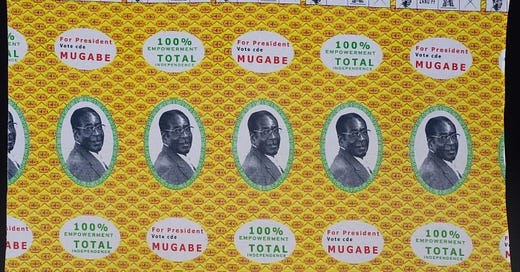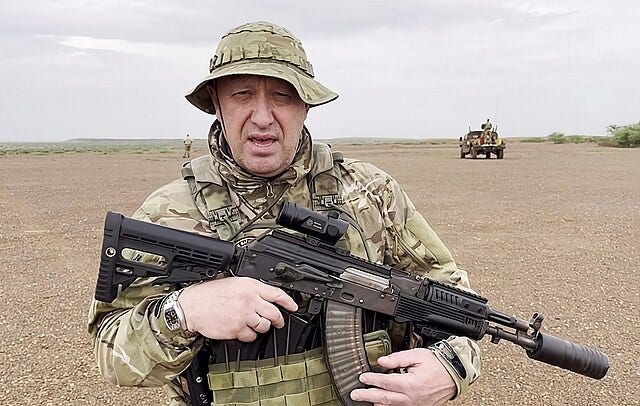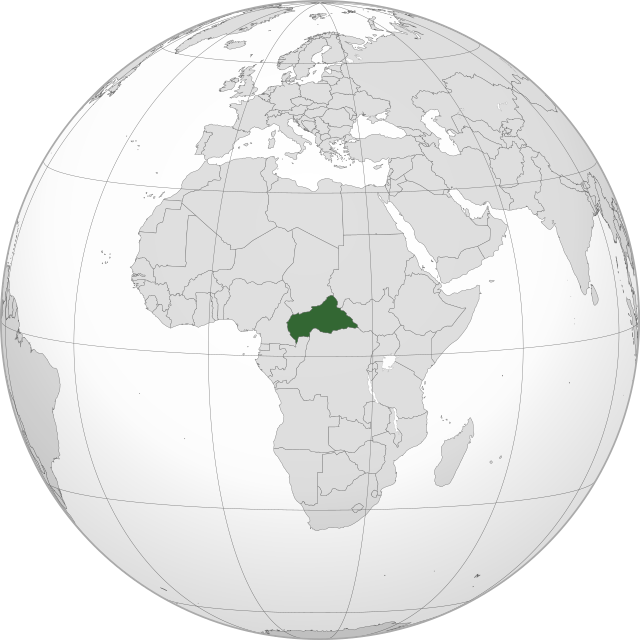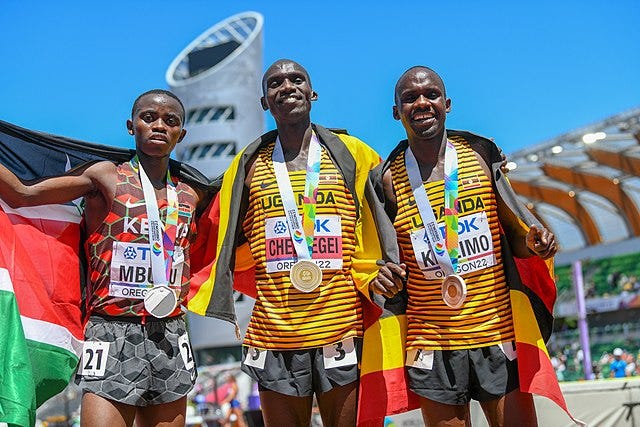🔅 Zimbabwe Elections, Wagner's Africa Move, Zambia's Mysterious Plane, and More
Zimbabwe votes amid economic challenges, a mysterious plane's haul in Zambia, CAR's presidential power shift, and Uganda's remarkable journey from near-miss to gold on the running tracks
Photo of the day: Burkina Faso

Markets:
🟢 Nigerian SE: 65,488.67 (+0.44%)
🔴 Johannesburg SE: 73,760.21 (-0.57%)
🟢 Ghana SE: 3,061.80 (+0.12%)
🔴 Nairobi SE: 100.69 (-0.17%)
🔴 US S&P 500: 4,389.11 (-0.24%)
🟢 Shanghai Composite: 3,120.33 (+0.88%)
Rwanda Unexpectedly Raises Rates, Namibia Holds Steady | Rwanda’s central bank surprised everyone by raising their interest rate by a whopping 50 basis points to 7.5%. That’s the highest rate in a decade, but Namibia is standing their ground with a rate of 7.75%.
*Data accurate as of the close of markets across the continent
Brief & Bright: Africa's Top Five Highlights
Zimbabwe Goes to the Polls with a Troubled Economy Hanging Over Them
Today, Zimbabwe is voting in a repeat of the 2018 election pitting President Mnangagwa against challenger Nelson Chamisa. While Mnangagwa has promised to tackle the country’s economy head-on in his first term, unemployment, inflation, and falls in the value of the Zim dollar have persisted. Both candidates have promised to turn the economy around (Chamisa has promised to bring Zimbabwe back to the "community of nations" following years of sanctions from the international community), but for many of the 6.6 million expected to vote, it’s a familiar story—since the repossession of land from white farm owners in 2000, Zimbabwe’s economy has been on a downhill slide. Even with a bumper agricultural harvest, nearly 3.8 million people will go hungry this year. With a history of disputed and violent elections, human rights groups are concerned about the same factors that blighted past elections, and forty CCC supporters are still in custody after being detained for attending a banned car rally last week. It’s a tough reality for the 1 million first-time voters, most of whom have never experienced the prosperous Zimbabwe of the past.
Wagner's Prigozhin Resurfaces in Africa
Russian mercenary chief Yevgeny Prigozhin just dropped a video on Telegram that appears to be shot in Africa. In it, he talks about “making Russia greater on all continents” and Africa “more free.” The group is already active in Mali, Central African Republic, and Libya, and there are rumours that it’s in Sudan, too. The UN alleges that Wagner fighters are committing human rights abuses in Mali, and now there’s a coup in Niger that’s being supported by the military government in Mali. Pro-coup demonstrators there have been waving Russian flags, and Prigozhin himself has welcomed the coup. His presence is likely to fuel Western fears that Wagner—the mercenary group Prigozhin is affiliated with—is expanding its operations in Africa.
Zambia: A Mysterious Plane, a Lot of Money, Gold, and Ammunition

What’s better than a regular old plane? A mysterious plane carrying over five million dollars, 126 rounds of ammunition, 602 pieces of gold, five pistols, and seven magazines. Oh, and ten suspects, including one Zambian, one Spanish national, one Dutch national, one Latvian national, and six Egyptian nationals. A plane like this was intercepted at Kenneth Kaunda International Airport near the capital of Lusaka, Zambia. The story behind it is not clear, but it has unsurprisingly sparked an outcry in Egypt, where citizens are speculating that it’s part of international gangs’ operations to move large amounts of money out of the country. The flight of money from Egypt has become a major concern as wealthy individuals look to keep their fortunes out of the eyes of the authorities.
The Central African Republic's Court Ruling: A Presidential Power Play
The Central African Republic's top court has declared that a referendum passed to extend the presidential term to seven years and remove limits on re-election, with 95% of the vote and a turnout of 57%. It looks like President Faustin-Archange Touadéra is here to stay—and he’s got some powerful friends in Russia, who had sent mercenaries to beef up security ahead of the vote. The new law also bans dual citizens from running for president and creates a unicameral parliament and a vice-president, appointed by the president. Opposition parties and civil society groups had urged a boycott, accusing the review committee of taking instructions from Russia. The diamond and gold-rich Central African Republic has been plagued by conflict and political turmoil for most of its history since independence from France in 1960.
Uganda's Distance Running Revival: From Near-Miss to Olympic Gold
Joshua Cheptegei had one goal when he lined up for the 2017 World Cross Country Championships in Kampala: win gold for Uganda. Unfortunately, his engine sputtered in the last half-mile and he crossed the finish line in 30th place. Little did he know that his near-triumph was the beginning of a Ugandan running renaissance. Fast forward four years and the country has two World Championship titles, an Olympic gold medal, and two world records to its name.
How did it all happen? Turns out that the rise of Uganda’s distance running scene is connected to Kenya’s success. Most of the East African nation’s 105 Olympic medals in running events come from the Kalenjin people, who are descended from pastoralists that migrated south from the Nile River Valley. What’s more, the Kalenjin are spread across Uganda’s western highlands, too. When British colonialists redrew the boundary between the two countries in 1902, they split the community into two. The Kalenjin live (and practice) at high altitude, which helps to increase oxygen-carrying red blood cells and lung capacity, but their thin lower legs and long legs-to-torso ratio helps. There has also been significant investment in infrastructure and the modernisation of training facilities. No surprise, then, that the region is teeming with kids training, dreaming of future glory. No surprise, either, that Cheptegei just won gold in the 10,000m race at the 2023 World Athletics Championships in Budapest on Sunday.
Food for Thought
“A leader in the community without a pot belly is a stingy man.”
— Nigerian Proverb.
Are we hitting the mark?
Enjoying Baobab's updates? Spread the joy and share us with friends and colleagues — we'd be thrilled to have them join!
Feedback or thoughts? Just hit reply. We're all ears!







